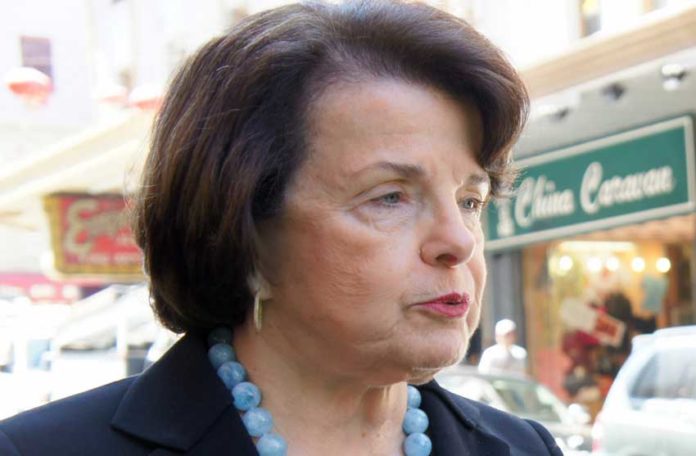Senate Intelligence Committee Chair Senator Dianne Feinstein (D-CA) has been in the news a lot lately having her just released report concerning allegedly abusive interrogation tactics used by the Central Intelligence Agency (C.I.A.) to pry actionable intelligence from Islamic extremists following the September 11 attacks on the country.
Sen. Feinstein is quoted in the New York Times as saying the C.I.A. interrogation program was “a stain on our values and our history” . . . and that “history will judge us by our commitment to a just society governed by law and the willingness to face an ugly truth and say ‘never again.”
But if you dig a little deeper into the results of a “Feinstein + Scandal” Google Search, you will find more than just Ms. Feinstein’s battle with the C.I.A.
In March 2007, Ms. Feinstein abruptly resigned from her seat on the Military Construction Appropriations subcommittee when it was revealed that her husband, Richard C. Blum, owned two major defense contractors who were awarded billions of dollars for military construction projects approved by the Senator.
Scandal struck again in 2011 when it was learned that the government had hired CBRE, a commercial real estate services firm controlled by Blum – through a sole source contract – to handle the sale of historic post offices, art and other property around the country – properties in high rent areas that were sold with commissions approaching one billion dollars for CBRE.
And then as recently as April, 2013 the Feinstein/Blum duo struck again – this time over a contract to bring high speed rail to The Golden State.
According to Winton Hall, writing in Breitbart’s Big Government blog, said that “Sen. Diane Feinstein’s husband Richard Blum won a construction contract for California’s high-speed rail project, reports the California Political Review…”
“Author Laer Pearce says Perini-Zachary-Parsons, a construction group partially owned by Blum’s investment firm, Blum Capital, and their investors, bagged the nearly billion-dollar contract:
The Perini-Zachary-Parsons bid was the lowest received from the five consortia participating in the bidding process, but ‘low’ is a relative term. The firms bid $985,142,530 to build the wildly anticipated first section of high-speed rail track that will tie the megopolis of Madera to the global finance center of Fresno. Do the division and you find that the low bid came in at a mere $35 million per mile.”
Winton added that a “study by the Reason Foundation found that the California High-Speed Rail System will lose between $124 million to $373 million a year.”
Do these scandals rise to “a stain on our values and our history” in the eyes of Sen. Feinstein? We will update you if the self-righteous senator calls.



























